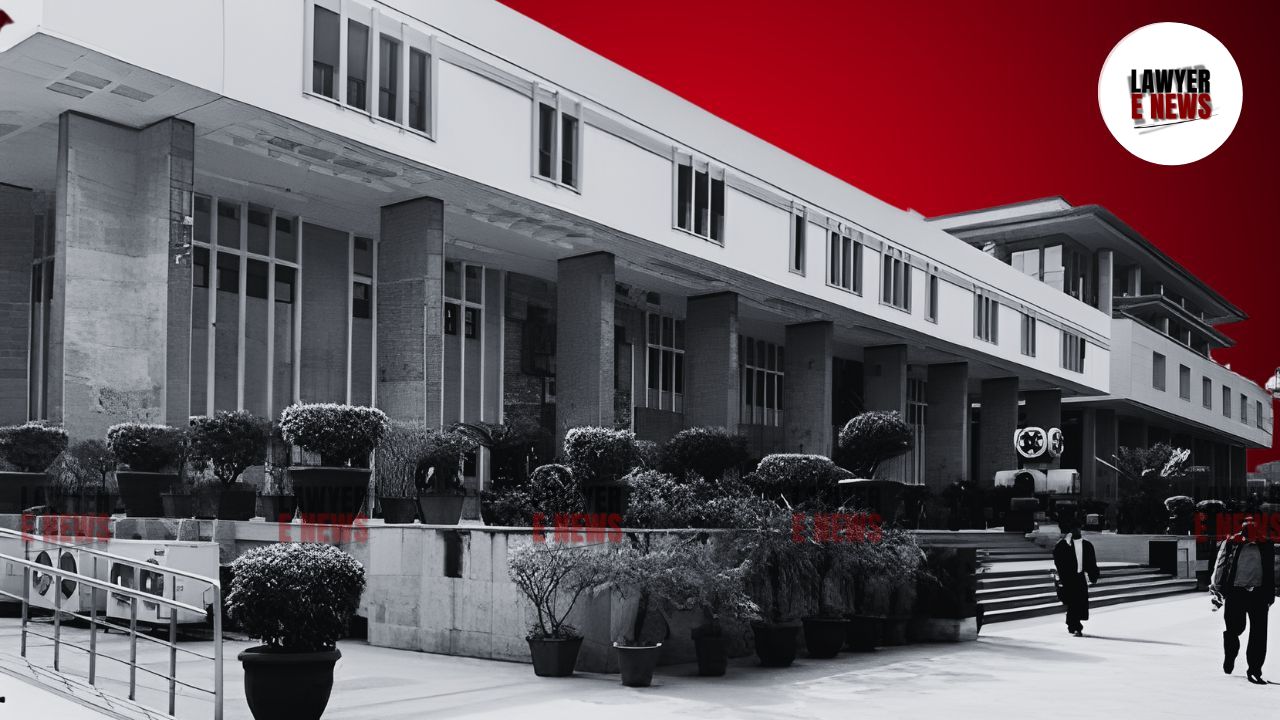-
by Admin
15 February 2026 5:35 AM



Delhi High Court dismissed an appeal by Jain Cooperative Bank Ltd., affirming lower court judgments that ordered the bank to pay ₹1,76,128, with 12% annual interest, to BSA Citi Couriers Pvt. Ltd. for services rendered. The Court held that the courier firm had sufficiently discharged its obligations and rejected the bank’s claims of non-delivery and deficient services as unsubstantiated.
Justice Purushaindra Kumar Kaurav ruled that the courier firm had no obligation to provide proof of delivery unless explicitly requested by the bank, a request which was never made. He emphasized, “The invoice terms clearly stipulate that proof of delivery may be provided upon request but is not, under any circumstances, a precondition for bill payment.”
The dispute originated from a courier service agreement between the bank and the courier company, under which the latter undertook to deliver AGM agenda packets to the bank’s members. In September 2013, the courier firm raised an invoice for ₹1,76,128 for its services. The bank, however, refused payment, citing non-delivery of many packets and asserting that it had suffered reputational damage due to the alleged lapses.
The courier firm initiated legal proceedings, which led to a decree by the Trial Court in 2017, ordering the bank to pay the invoiced amount with interest. The judgment was upheld by the First Appellate Court in 2023. The bank subsequently filed the present second appeal, arguing that the lower courts had erroneously shifted the burden of proving delivery onto the bank.
The bank contended that several packets were undelivered, referencing an email suggesting that 5,116 letters remained undelivered and another 5,028 were returned. It claimed the courier firm failed to adhere to agreed-upon terms requiring confirmation of delivery before raising invoices. The bank also accused the courier firm of destroying delivery records to cover up service deficiencies and demanded ₹1,50,000 in damages for reputational harm.
The courier firm refuted the allegations, asserting that it had fulfilled its contractual obligations. Its witness testified that delivery was carried out as required, and any undelivered packets were minimal and incidental. The firm maintained that no proof of delivery was requested at the time and pointed out that the bank had failed to produce credible evidence of service deficiencies. It further clarified that proof of delivery could only have been provided within six months of the transaction, per its record-keeping policy.
The Court found no merit in the bank’s claims. Justice Kaurav noted that the email and receipt relied upon by the bank were not properly exhibited as evidence and lacked the certification required under Section 65B of the Indian Evidence Act for electronic records. Consequently, they were inadmissible. The Court emphasized that the courier firm had raised a valid invoice, which the bank was obligated to pay absent any contemporaneous complaints or requests for proof of delivery.
The Court also highlighted that both lower courts had carefully examined the evidence and found no irregularities. It relied on the Supreme Court’s guidance in Balasubramanian v. M. Arockiasamy, reiterating that concurrent findings of fact by lower courts are generally binding unless they are perverse or lack evidentiary support. In this case, the Court concluded, there was no such defect warranting intervention.
The High Court dismissed the appeal and upheld the Trial Court’s decree for payment. The bank was directed to pay ₹1,76,128 with interest at 12% per annum from October 1, 2013, until realization. Additionally, all pending applications were disposed of.
This judgment underscores the importance of adhering to contractual terms and the evidentiary requirements in litigation, particularly when contesting financial claims. The Court’s decision also reaffirms that proof of delivery obligations must align with agreed terms and cannot be retroactively imposed to evade payment.
Date of Decision: November 21, 2024.
